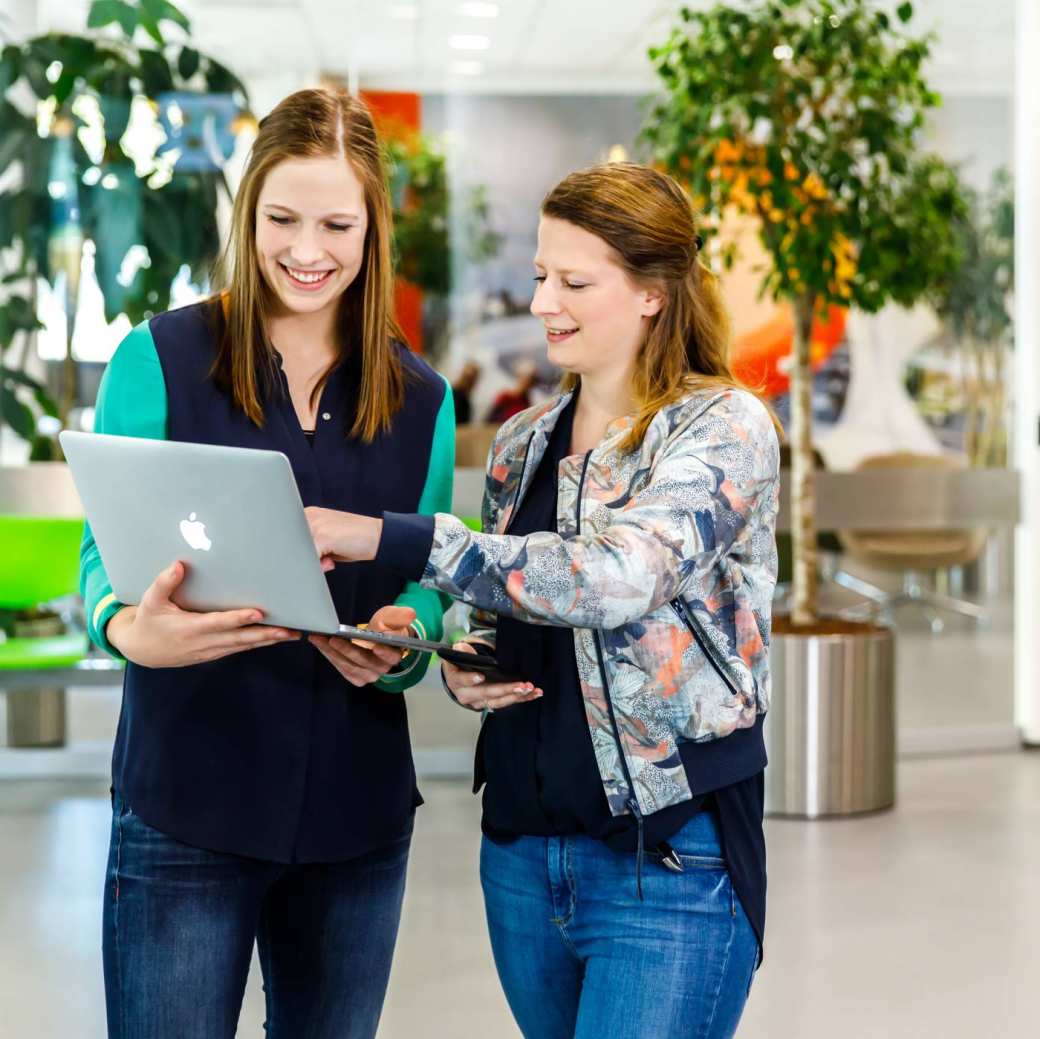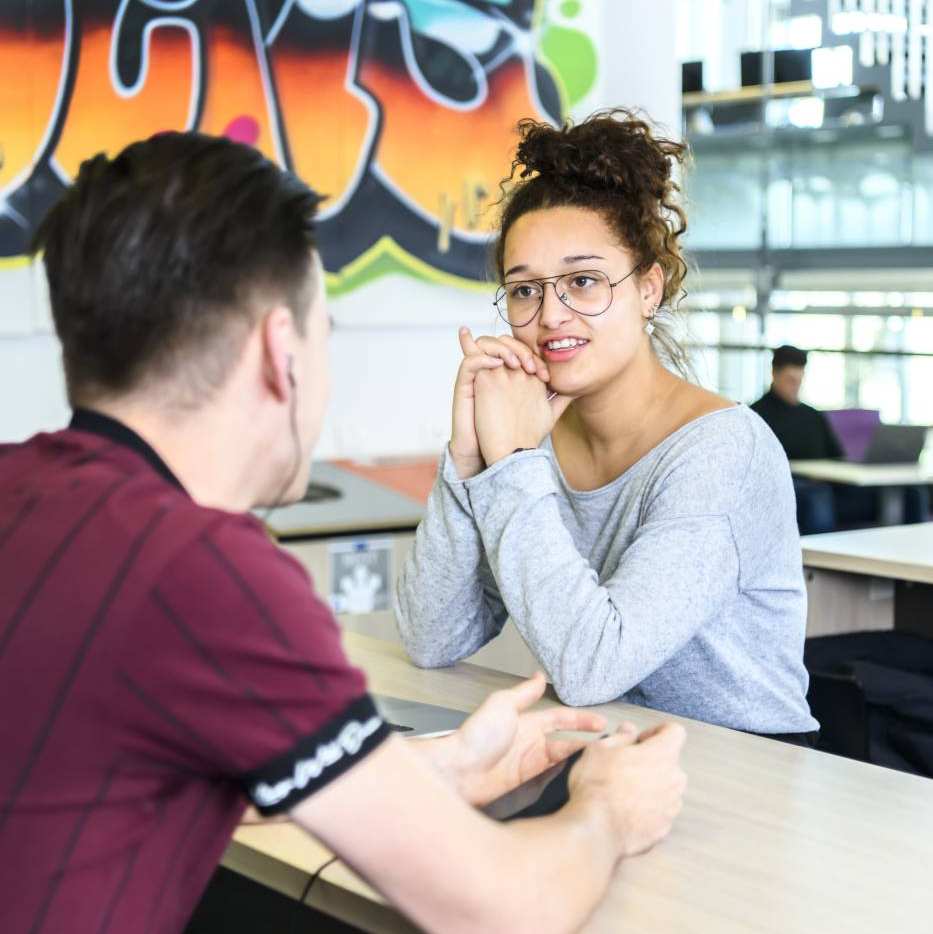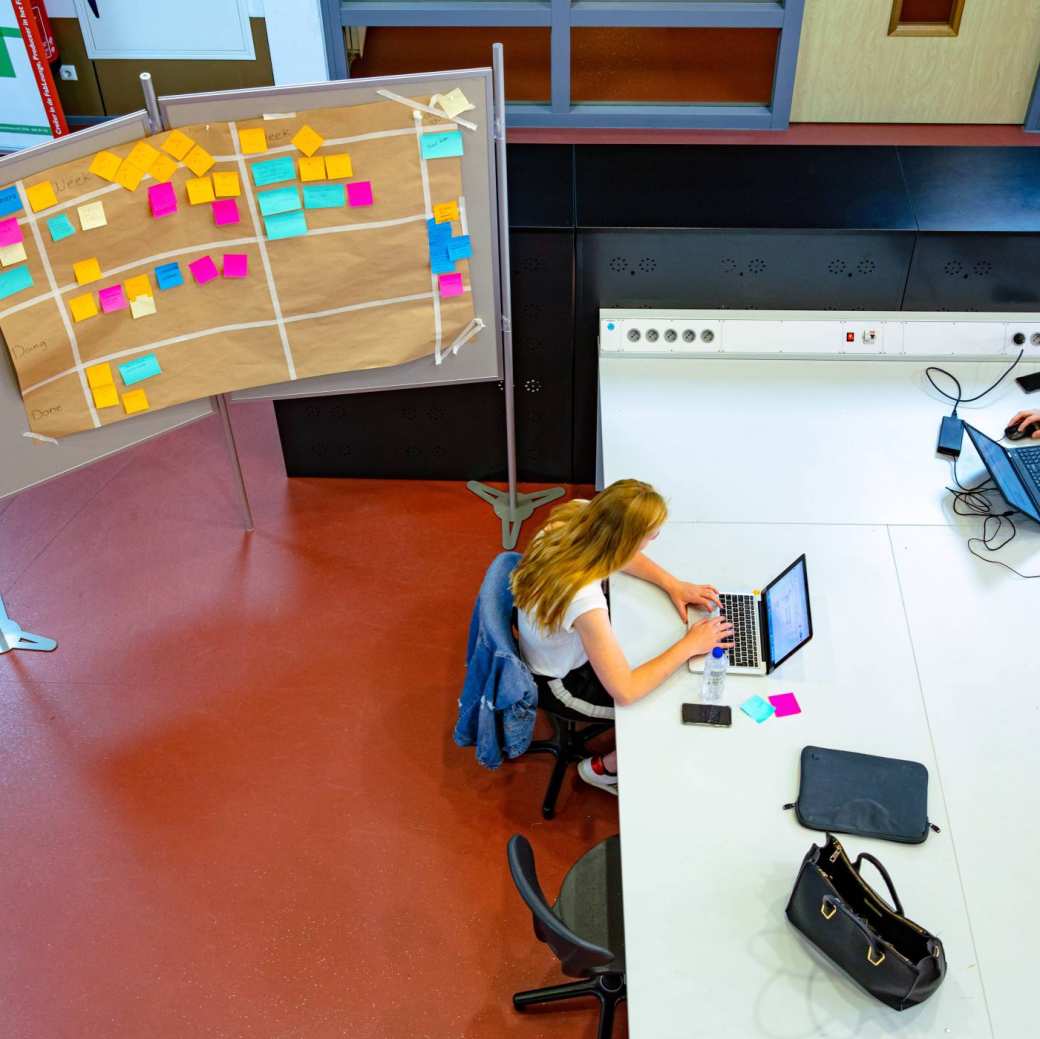Create a High-End Video Game
Learn to anticipate and identify players’ needs. Improve your computer skills. You learn how to develop yourself professionally. Work in multidisciplinary groups. And communicate effectively. Your final assignment? Design and prototype an inventive video game.

The program in a nutshell
Your classes and workshops take place Monday through Friday. You get a better handle on professional design. Technical and tactical skills. Gamer motivation and AI. Simulation and behavior programming. And more. All the areas surrounding video games. That attract and motivate players to keep on playing.
The program comprises three educational units: Game Art for media design, Game Programming for ICT and a common educational unit: Game Design.You deliver the final project in collaboration with your ~ 30 cohorts. Together, you all work to create an engaging video game concept. A concept that’s been chosen from student designs, turned in during the exchange program. Design the video game to end all games.

Program details
Learning outcomes
By the end of the Create a High-End Video Game exchange program you can:
- analyze game concepts for PC and/or console
- design game techniques to motivate players
- think up backstories for game characters
- design game graphics and sounds
- program in C#
- work in an interdisciplinary group to achieve one goal
- co-create in real-life situations

Competences
You strengthen these 3 main competence areas during the program:
Game Design (common)
- Player motivation
- Interactive Storytelling
- Goals, Actions, Rules & Feedback
- Mechanics, Dynamics, Aesthetics
- Multi-disciplinary collaboration
- Level Design
Game Art (specialization)
- 3D art, drawing
- Graphic design
- Game Sound & Music
Game Programming (specialization)
- Math, physics, AI
- Simulation/behavior programming

Dutch way of learning
The atmosphere in a Dutch classroom is quite informal and your lecturers are easy to talk to. In fact, at HAN you’re seen as a partner in the learning process. Class sizes are small and your lecturers encourage you to actively participate in class. To ask questions and give your own opinion. They also stimulate you to be creative and to discover things for yourself.

HAN International Intro
Get a good start to your studies during this week of orientation:
- learn about living in the Netherlands
- become familiar with the campus
- get on board with your exchange program
- make new friends!

What about credits and grading?
At HAN we use the European Credit Transfer and Accumulation System, or ECTS. It’s the standard credit system used in higher education across Europe. How does it work? One credit = 28 hours of study. Think of contact hours. Time spent working on assignments. Preparing for exams.
One semester = 30 credits = 840 hours of study. To earn credits, you need to pass your exams. What counts as a pass? A grade of at least 5.5.

Admission
What are the admission requirements? And how do I apply?
